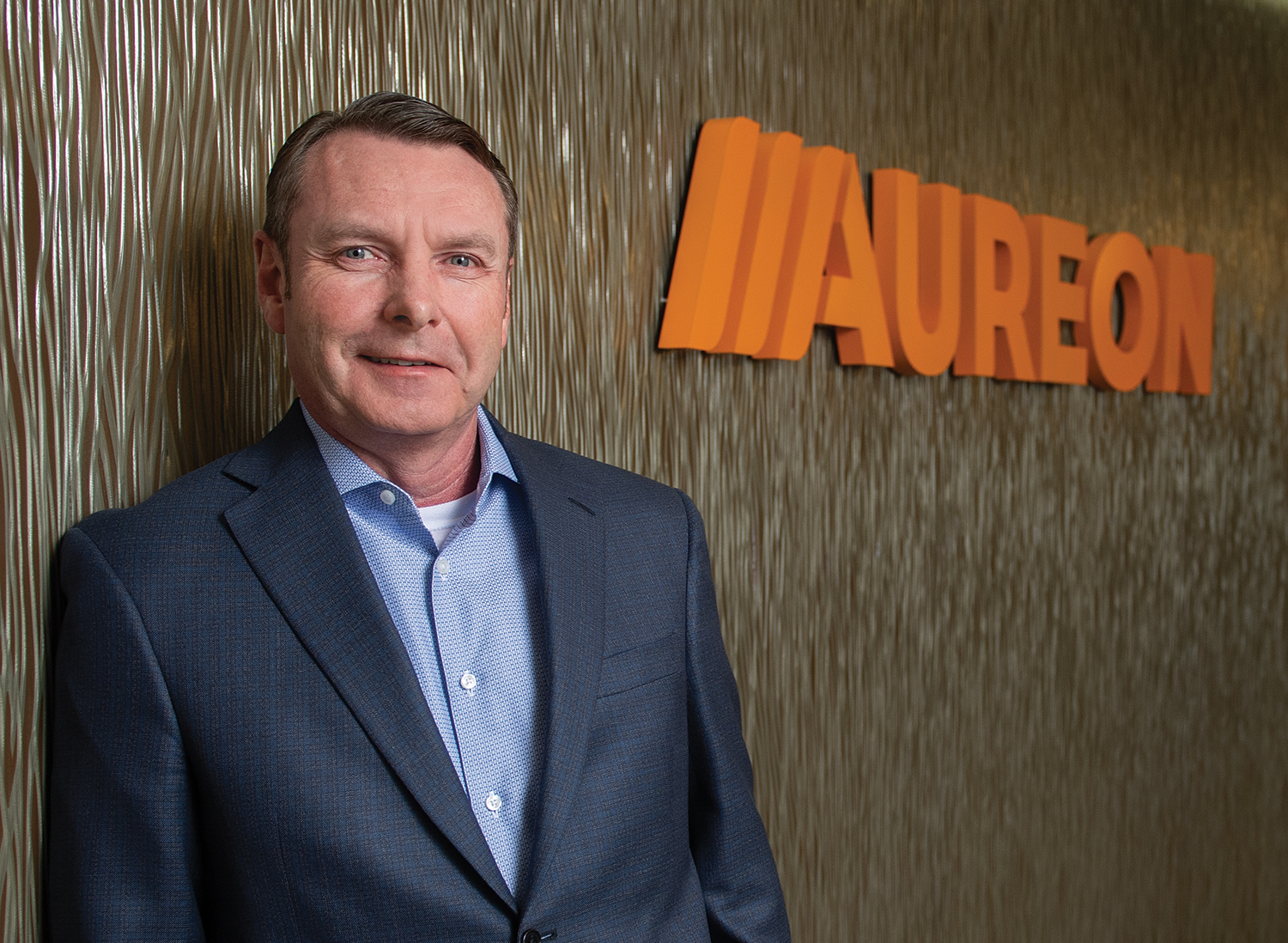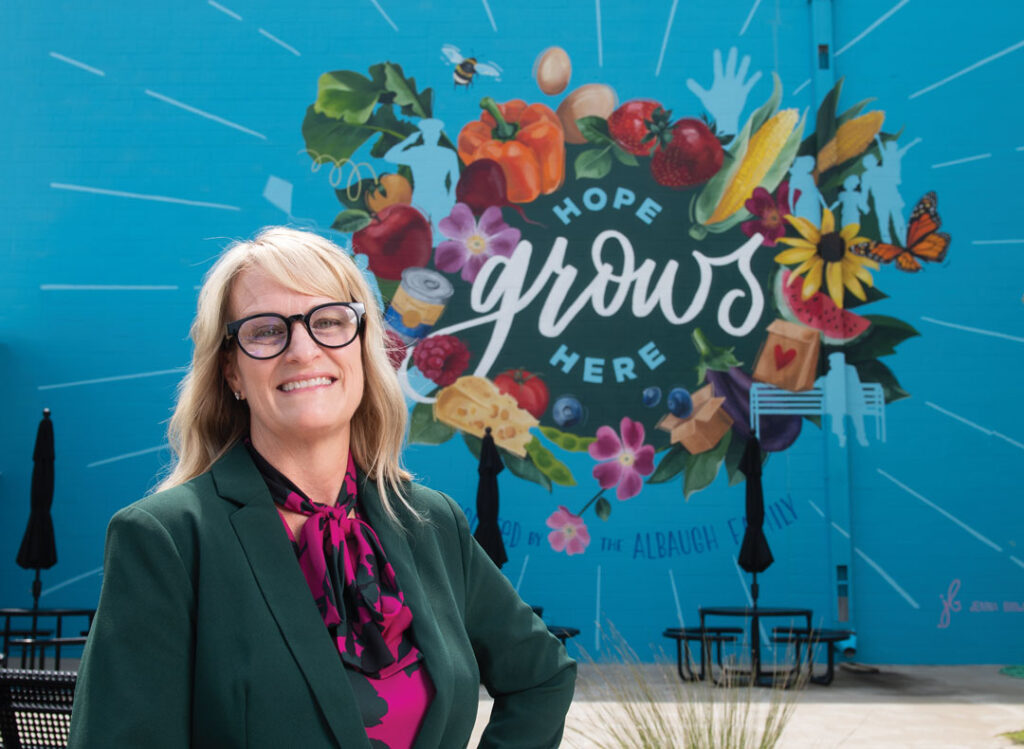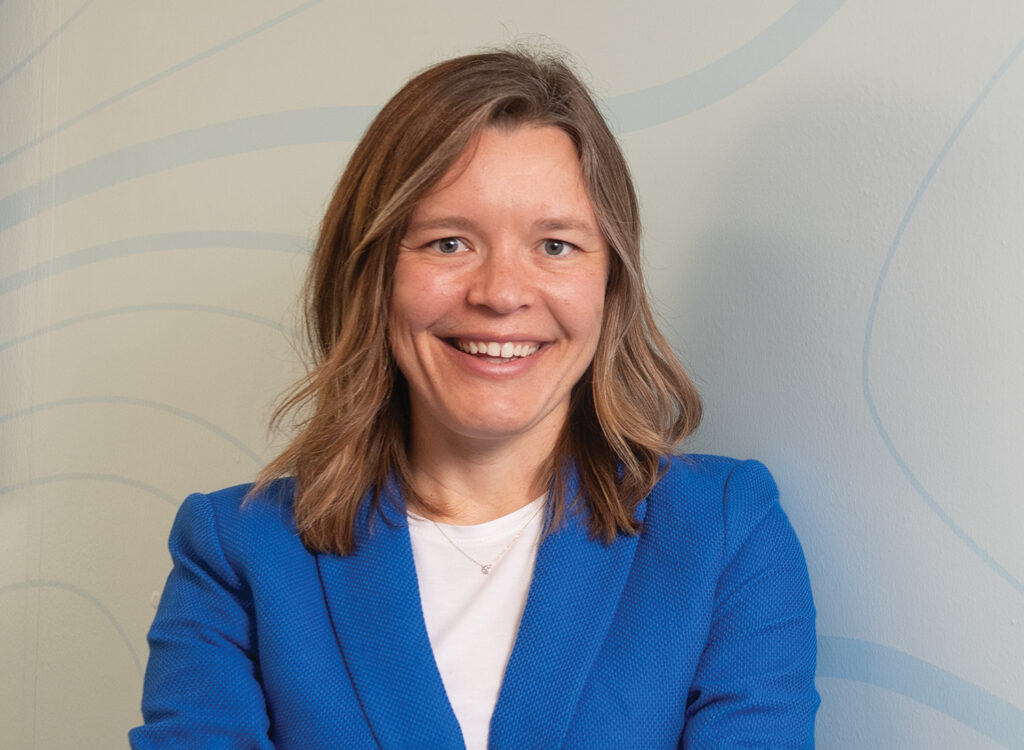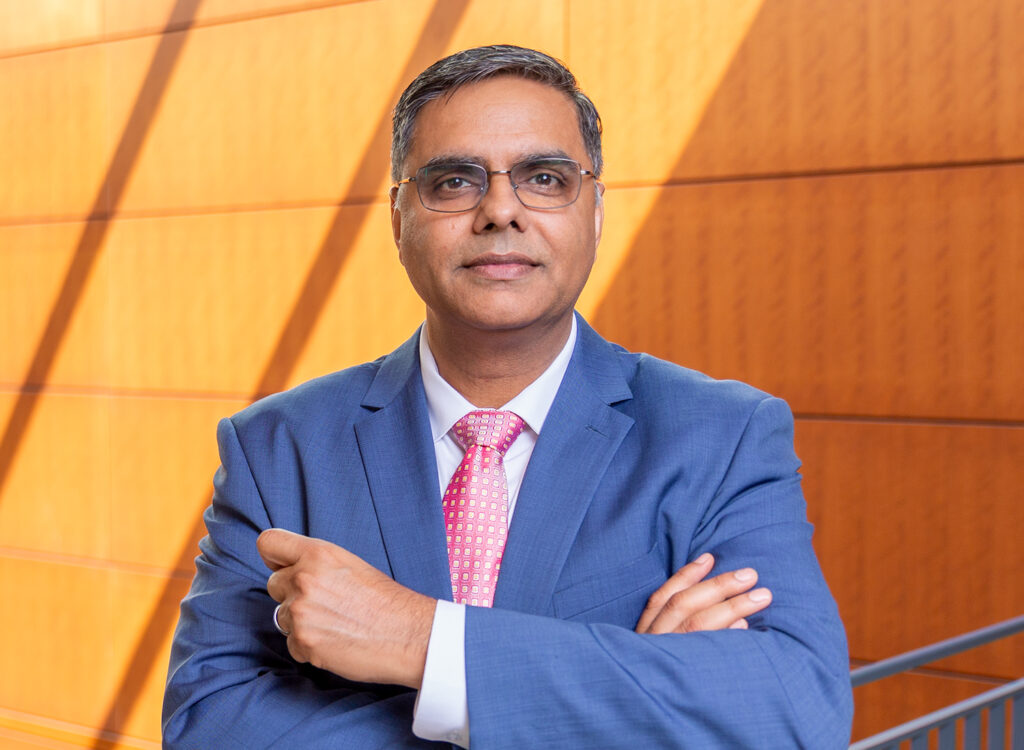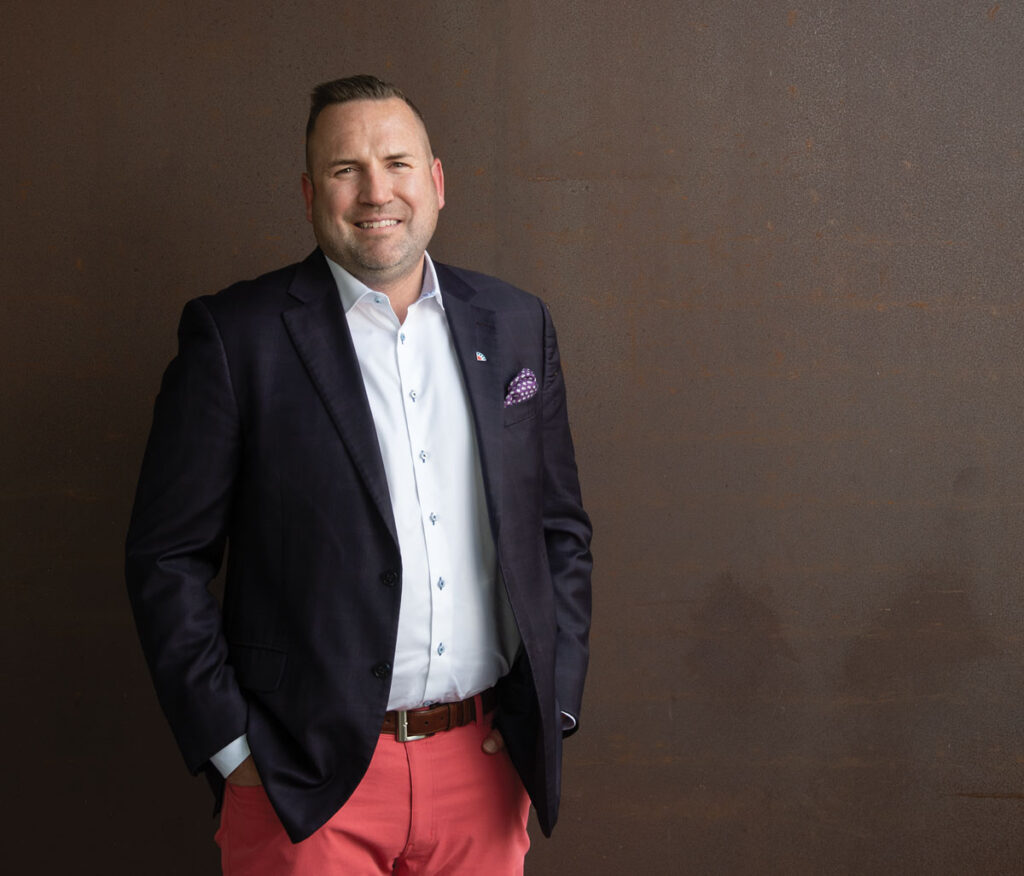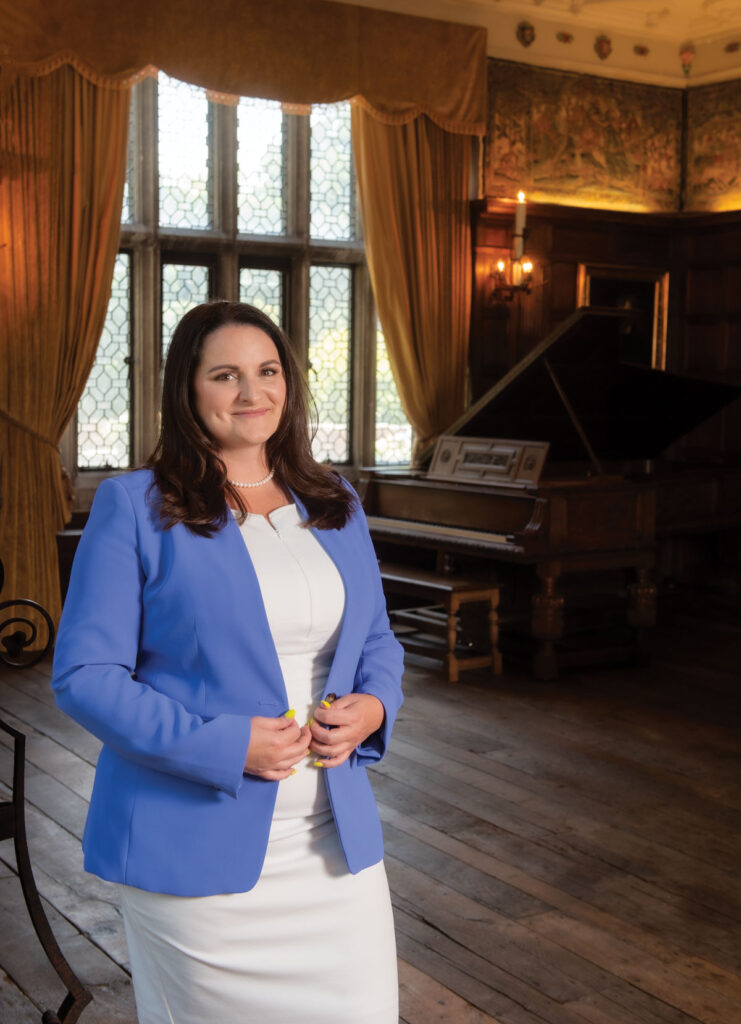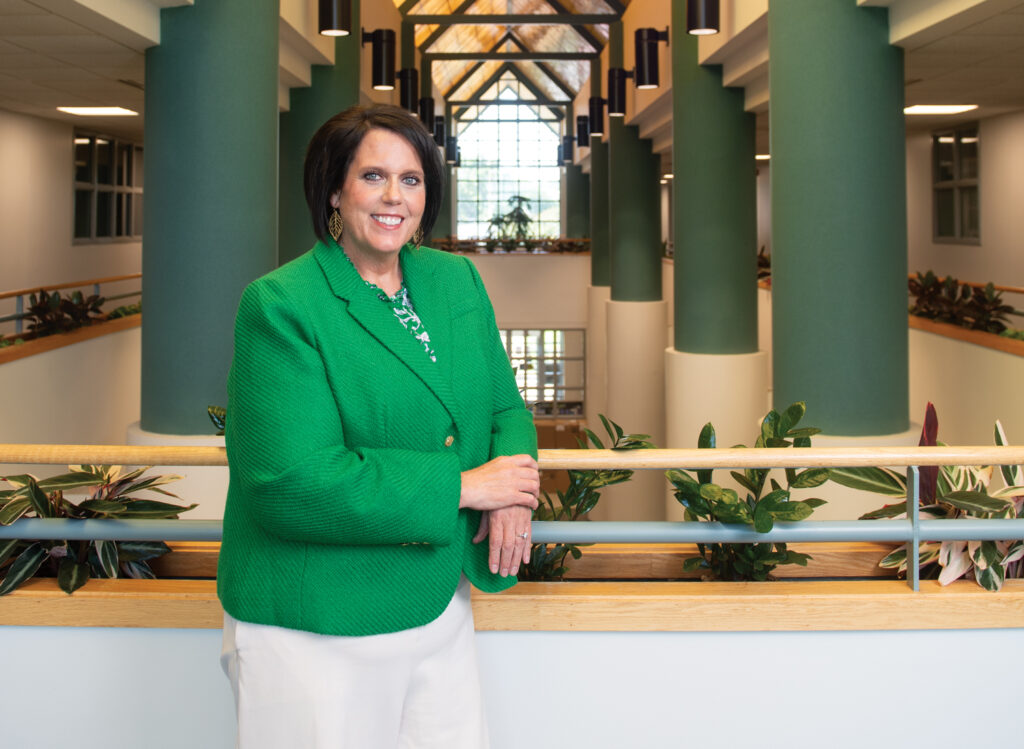Perfectionism, public speaking and West Point: Meet George O’Neal, president and CEO of Aureon
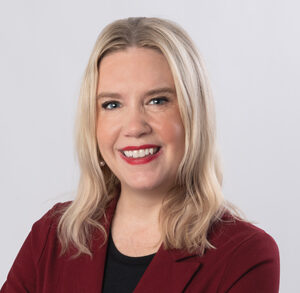
When Geoge O’Neal was going through the interview process and researching technology solution provider Aureon, where he was being recruited for the CEO role, he said he liked the “uniqueness” of the opportunity
“I like unique challenges and this is definitely one,” said O’Neal, who became president and CEO on Jan. 13, replacing Scott Behn.
He said it’s unique in the sense that there are fiber companies, companies that do managed IT services, contact center companies and consulting companies, but not many that offer multiple services.
“There are very few, if any, that have the whole package together,” he said. “And then you combine that, we’re owned by … our shareholders … the independent telephone companies. That also makes us pretty unique.”
O’Neal has worked in the telecommunications and network administration field for nearly 30 years. He previously held roles at Alltell and AT&T, and most recently he served 18 years as vice president of network services for GVTC Communications, a Texas-based communications provider. He led the transformation of GVTC’s network from copper to fiber, building fiber to over 80,000 rooftops and managed over $350 million in capital spending.
O’Neal received a bachelor’s degree in mechanical engineering from the U.S. Military Academy at West Point. After graduating, he served in the U.S. Army as a second lieutenant.
Aureon was created in the 1980s by a group of small independent telephone companies around the state of Iowa, he said. Today, Aureon has 450 employees and has access to almost 60,000 miles of fiber in Iowa. The company also has a presence in Kansas City, with employees there. It also has access to Chicago and Minneapolis from a fiber standpoint, he said.
The Business Record sat down with O’Neal at Aureon’s West Des Moines office to learn more about his career and his new role.
This Q&A has been lightly edited for clarity and length.
Disclaimer: Business Publications Corp. is an Aureon customer.
I’ve heard rural Iowa in some areas is not very connected to the internet. What is your opinion on how connected Iowa is and how does Aureon help with that?
If you look at the statistics, I believe Iowa ranks, I think, 14 out of the 50 states for capability of 1 gigabyte to residential and business customers. So that’s pretty solid. I know that my shareholders have done an excellent job of building fiber to their communities. There’s a large federal program called Broadband Equity, Access, and Deployment. When the federal government came up with the amount of money, they then looked at each individual state, and they did it based on how many customers out there don’t have access to what they consider good broadband, which would be 100 megabyte speed. When Iowa was looked at, they actually did not qualify for a huge amount of dollars, because they’ve done a good job of building good broadband. I believe probably where Iowa is the weakest would be in some of the big metro areas, because some of the larger traditional carriers haven’t done a great job of doing fiber to the home. They’re catching on now, but I think that’s probably the biggest opportunity. Overall, it’s pretty solid. And I think Aureon’s play in that is obviously providing access to the internet on a wholesale basis. But also, we need to do a great job here in Des Moines and Cedar Rapids and some of the other locations where we are in metro environments to offer solutions to our potential customers.
Let’s talk about public speaking. I heard that you’re really good at it, and most people find it terrifying. What’s been your process for getting up to speed on that?
When I grew up, even if I knew the answer in class, I wouldn’t raise my hand, because the risk of the embarrassment of it being wrong was not worth the reward of it being right. But when I went to West Point, everything changed. They forced you to get up in front of folks and talk even, of all places, in our calculus class. And then I had an officer at the Academy my senior year give me a tip, and said, ‘The key to public speaking, what makes you scared, is that you’re not going to know an answer to a question. And the way to relax on that is you come in, you prepare, you do the right things, you work hard at it, but you’re never going to know the answer to every question.” To be able to have in your back pocket to say, “That is an excellent question, and I’ll get back to you on that.” That just kind of freed me up. As I got into the work world I didn’t shy away from opportunities to speak publicly, and just continue to hone my skills. A lot of it, too, is I’ve learned – what story do I want to tell? Whether it’s numbers or whatever I’m trying to present, being able to craft that into a story that’s relatable to my audience, I think is important. I usually try to have a little humor as well. Once you get over the fear of speaking, it’s kind of fun after that.
Would you describe yourself as a perfectionist?
Yeah. Less so than when I was growing up. Growing up, very much a perfectionist, to a fault. So I’ve learned to temper that a little bit, but yeah, I fight against my perfectionist tendency.
Being a perfectionist takes a lot of time, and as I’ve gone through raising three children, you just learn that maybe being a perfectionist all the time is just not worth it. It’s maybe focusing on the bigger stuff that’s more important.
What’s your most important technological accomplishment?
I’ve been in technical management for the majority of my 30 years in telecom, and in 2020, right before we all left the office for COVID, the fiber network that I built for my previous company with an amazing team that I had, was independently ranked No. 1 in the United States and No. 3 in the world by Netflix. We were a small, 230-employee company beating out the behemoths, like AT&T and Verizon and everybody. So that was my biggest at the time. Now, I hope to accomplish some greater technological and business accomplishments here at Aureon than that.
You served as the board director of the Fiber Broadband Association, and I was reading about how you advanced industry standards nationwide. What industry standards did you advance?
We worked with them on what are we trying to accomplish in general, to make it good for, not only the consumer, but also the carrier that’s providing it? What we also did that was, I think, probably more important than that, was we worked on standards and best practices for construction of fiber, whether it be aerial or buried construction, as we mostly do in Iowa. If you were getting into the business and you didn’t know anything, you would have a resource through the Fiber Broadband Association to learn how to build a fiber network and operate a fiber network. One of my big focus areas was, how do you monetize that network? Because, as we’ve learned, it’s not just a ‘build it and they will come.” You’ve got to have the marketing. You have to have the product pricing. And so I really focused hard on trying to get them to get past the construction process and look at how you monetize the network.
How do you go about making an idea a reality?
The biggest thing is getting out of the telecom world, which I’ve been in forever, and looking at it from a consumer standpoint, and trying to think about how people solve problems or what problems are consumers having. Then we can find a way to create a solution for that, and then do it in a way that makes the customer feel good. If you think about Amazon, its core business is delivering stuff that you order online, which has been done for a long time before Amazon, but they do it in a way that makes the customer feel good about it, and it’s easy to do business with them. Then they’ve added all these other services on top. Our customer experience has to be great as well. I try to get outside of my comfort zone, and focus more on what the consumer needs and then we go through a very rigorous kind of strategic planning process to evaluate what do we do well? What do we need to improve on? What does the future look like in the next three to five years? How do we get to where we need to be, and then translating those plans into executable projects, and then having a team that can go and successfully execute on those projects, is how you turn it into reality. And so that three-legged stool there. You have to think outside the box, and then you get it. You have to make that into a realistic plan, and then go execute on that.
What are some of the consumer problems right now that you’ve learned about?
Obviously I’m focused mostly on business, but it applies to residential as well, as I think cybersecurity is huge. AI is just going gangbusters right now, and it can be a very, very positive thing. I was recently watching the Masters tournament. They’re using AI to translate all that data into cool statistics that we learned. But it can also be a very negative thing. Hackers can use AI to do all sorts of things, so cybersecurity is a big opportunity and a big threat as well. Coming up with good security plans for the consumer is going to be absolutely critical, not only for the health of their business, but also for Aureon from a growth standpoint, that’s going to be huge. The positive side of AI is how do we utilize that in our business to be more efficient, or to learn new insights, or to help us grow? That’s going to be critical as well. Obviously access, from our standpoint, looking at it, is, how do we provide a great value service? We don’t want to just be, ‘Aureon is my internet provider.” We want to provide a solution. Because of our multitude of areas that we cover, we do have an opportunity to provide unique solutions that not everybody else can, depending on the size of the business. There’s lots of opportunities there, but we’ve got to be creative and efficient in how we attack these problems and move forward.
How did West Point prepare you for a leadership and CEO role?
I grew up a little spoiled and I was able to endure the challenges that West Point creates, because they have a unique ability to make everything from eating to walking very difficult. They pack your schedule so full that homework and classes and everything is just challenging. So you get really good at time management. You’re really good at learning how things operate, so that you cannot get yelled at and survive. But what it probably did, more than anything, was you see so many examples of leadership, not only from past graduates, the famous past graduates that have statues all over the place that you study, but also in reality, we have a group of five to seven leaders that directly impact your life on a daily basis. They rotate those leaders each semester, so when you add it all up, you have about 50-ish leaders that have a pretty big influence on you, and by watching those folks up close, you get to take mental notes of, ‘This guy is great. I love how he does this and this and this, but I’m not a big fan of what he did over there.” Or, “This guy is terrible. I never want to be like him or her.” By being diligent about really observing leadership styles and what works and what doesn’t work, it just got me excited about the whole process, and I continue to do that today. I continue to read and watch leaders and analyze their successes and things that they do that aren’t so great, and try to continue to become a better relational leader. I’m very relational. I try to meet and know as many of my employees as possible and build real relationships with them, and so that we’re working together. It’s not an, ‘I said thing,’ it’s a, ‘this is our common goal.’ Let’s go get it. It’s been a fun journey of leadership growth and I’m excited to continue to grow as I’ve taken on this role.
What are the challenges and opportunities at Aureon right now?
Well, I came in with a unique perception of our structure and opportunities, and so we made some changes in the way we are organized on our leadership to try to simplify how we present ourselves to the customer. In the past, we were a little fragmented from a customer perspective. We acted like multiple different product families or the contact center and consulting and connectivity. We acted from an outward standpoint as different companies. I’ve come up with a concept called One Aureon, and that’s where we are going to live and breathe as one company with different product families. We’re going through that process, integrating that throughout the business. We’ve got to do a great job of improving our marketing and showing the solution, types of solutions that we can offer to our potential customers, and then we’ve got to do a great job of becoming great at customer experience. People remember — it’s not that you’re perfect — it’s the impression that you left behind. We have to really improve on how we provide our service, not just the service we provide, but how we provide it.
What books are you reading right now?
One recent book that I read was ‘Sea Stories: My Life in Special Operations’ by Admiral McRaven. McRaven started out as a Navy SEAL officer and then progressed through and became the commanding admiral of all special forces throughout the military-led operations like against the one the movie ‘Captain Phillips’ is based on. In the movie, Somali pirates had taken over, I believe, an oil vessel and Navy SEALs came in and rescued him, and then the killing of Osama bin Laden. McRaven was over that operation. It’s just a very interesting book. And again, it’s an opportunity to observe leadership, and he talks about mistakes he made versus different ways he did things.

Lisa Rossi
Lisa Rossi is a staff writer at Business Record. She covers innovation and entrepreneurship, insurance, health care, and Iowa Stops Hunger.

